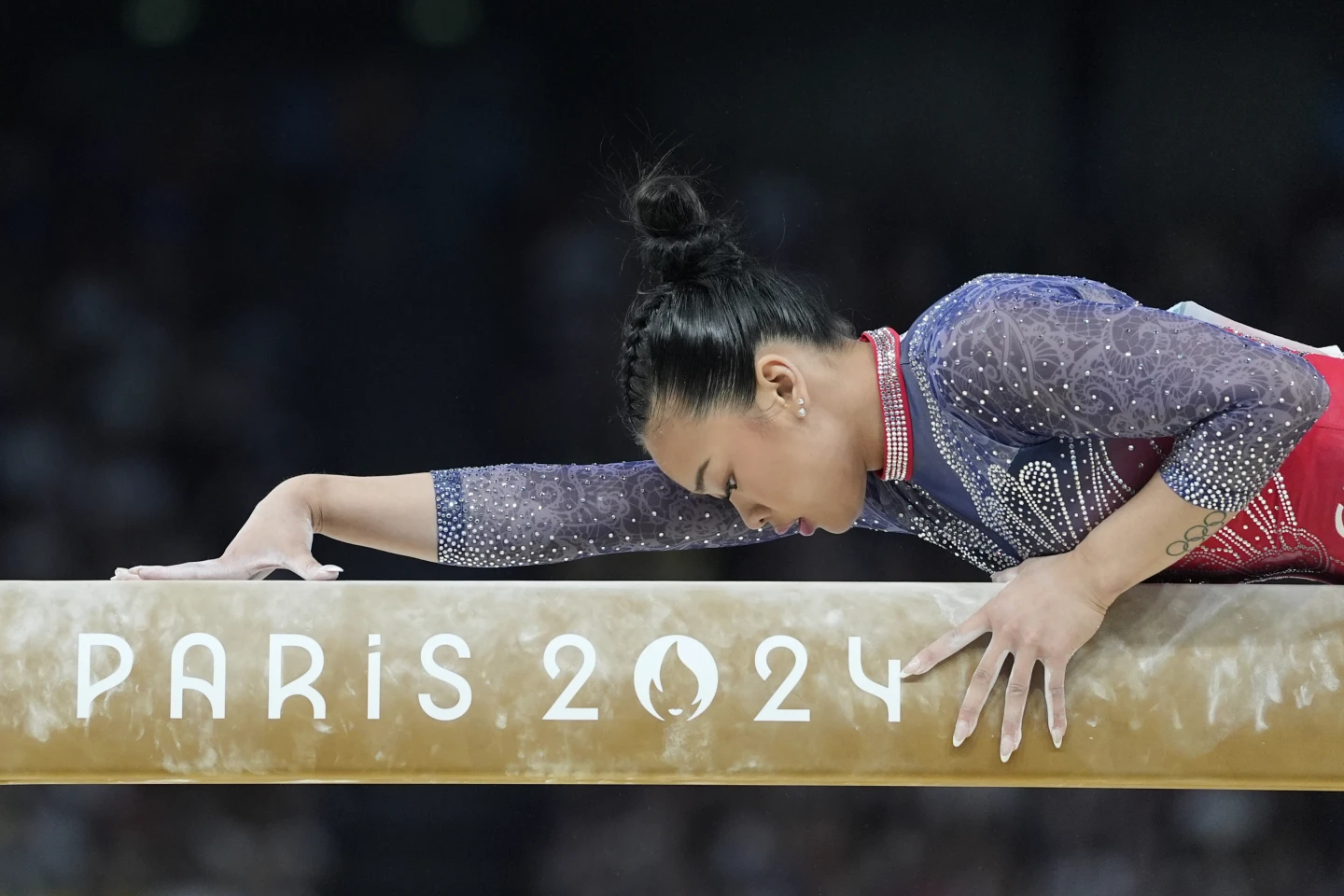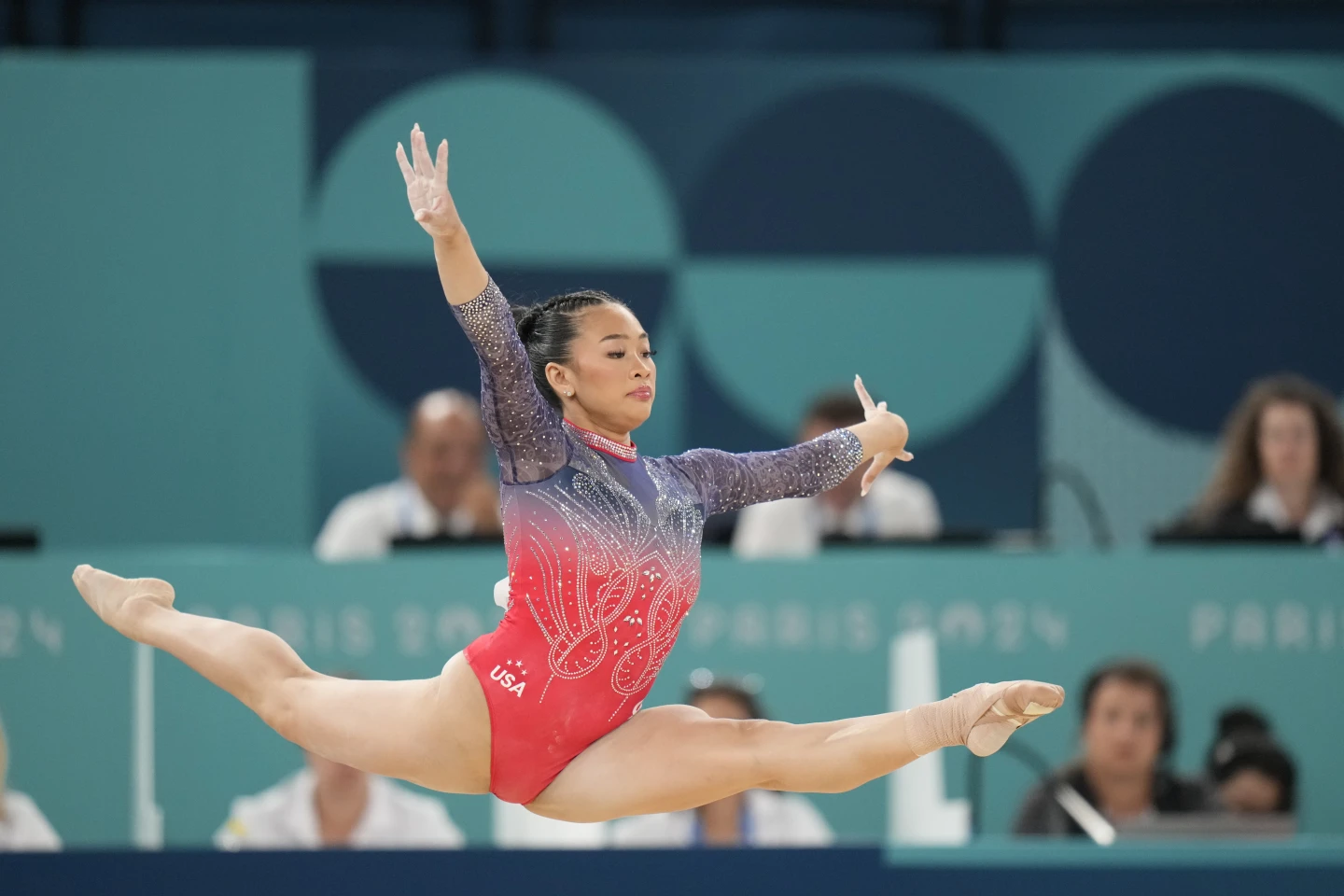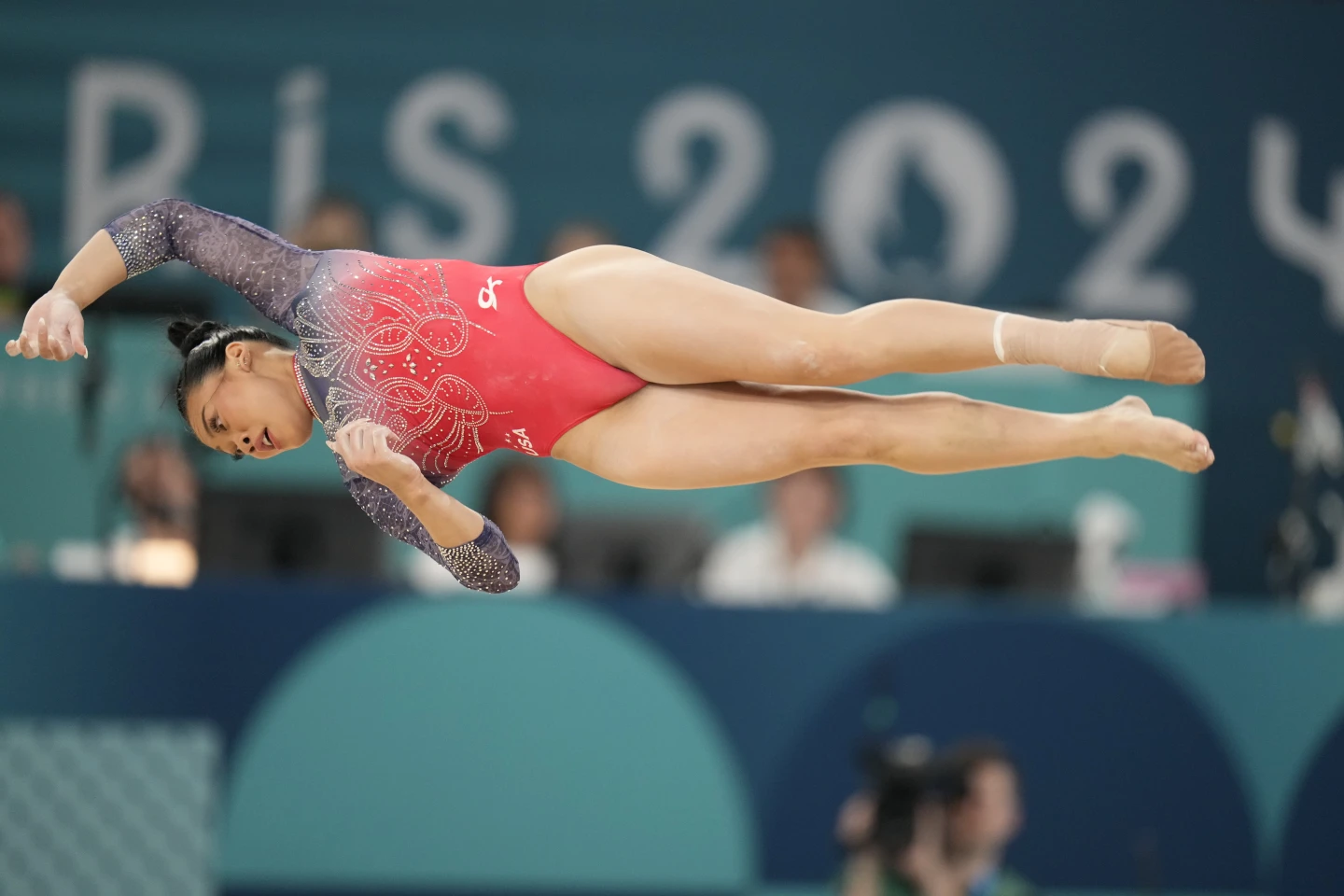Sunisa Lee recently called coach Jess Graba to say she was done with gymnastics. Dealing with two kidney diseases had caused her weight to fluctuate and left her feeling uncertain and frustrated. Graba told her to come to the gym; such decisions shouldn’t be made over the phone.
They talked it through, and Lee’s desire to retire faded. She stayed in the gym, and gradually—though very slowly—her skills and endurance returned.
Externally, Lee didn’t need validation, but internally, she did. On Thursday night at Bercy Arena, she received that validation with a bronze medal in the all-around, a result she wasn’t sure she deserved until IOC president Thomas Bach put the medal around her neck.
“I just wanted to prove to myself that I could do it because I didn’t think that I could,” Lee said.
Lee has a determination that contrasts with her graceful gymnastics. She relied on this determination for months as she and Graba worked on a plan that ended with Lee standing on the medal stand alongside her friend Simone Biles and Brazil’s Rebeca Andrade.
While Biles and Andrade were expected to be there, Lee’s presence was a surprise. She didn’t make the world championships team last fall because she wasn’t ready.

Lee performed in front of a crowd that included the U.S. men’s basketball team and Kendall Jenner, most of whom came to see Biles. Lee reminded them that she could also deliver a great performance.
Lee continues to impress on the uneven bars and will compete for a medal there later in the Games. She will also be in the beam final, showcasing a blend of grace and athleticism. The floor exercise, however, can be more challenging. She entered the final rotation off the podium, and Graba kept things straightforward.
“Win floor, and you’ll win a bronze,” he told her.
Lee did just that, moving past Algeria’s Kaylia Nemour to become the first reigning Olympic champion to win a medal in the next games since Nadia Comaneci did it in 1980.
It’s impressive for an athlete who still sometimes wonders how she’ll feel on the day. She’s had more good days than bad, securing a spot in the all-around final by edging out teammate Jordan Chiles, then performing four routines that were as good as or better than those she did in Tokyo three years ago when she narrowly beat Andrade in a tight final.
“I did everything that I could,” Lee said. “I went out there and just told myself not to put any pressure on myself, because I didn’t want to think about the past Olympics.”

She had a lot more to think about. The stands were full, unlike in Tokyo. Her family was there too, unlike in Tokyo. And she felt joy in her sport that she sometimes wondered if she had lost along the way.
She also had Biles. They supported each other heavily during a final where both found themselves in challenging positions but managed to excel in the end.
“Having Simone here today definitely helped me a lot because we were both freaking out,” Lee said. “And so it just felt nice to know that I wasn’t out there freaking out by myself.”
There was no need to worry. Graba often calls Lee a “fighter.” That mental and physical toughness was evident in a medal that, while not the same color as the one she won in Japan, was still very meaningful.
